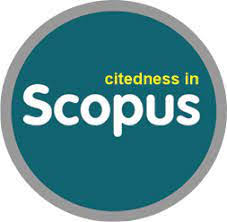DAMPAK TEKNOLOGI KECERDASAN BUATAN (AI) PADA POLA KONSUMSI MEDIA SOSIAL GENERASI MUDA: ANTARA EFISIENSI, KETERGANTUNGAN, DAN IMPLIKASI HUKUM
DOI:
https://doi.org/10.35326/judicatum.v2i2.6977Keywords:
Kecerdasan Buatan, Media Sosial, Generasi Muda, Ketergantungan, Etika Digital, Literasi Media, Privasi DataAbstract
Penelitian ini mengeksplorasi dampak teknologi kecerdasan buatan (AI) pada pola konsumsi media sosial generasi muda, dengan fokus pada efisiensi, ketergantungan, serta implikasi sosial, budaya, dan etika. Dengan pendekatan kualitatif yang melibatkan wawancara mendalam dan analisis konten, penelitian ini menemukan bahwa meskipun AI meningkatkan efisiensi dalam menemukan konten yang relevan, ia juga menciptakan ketergantungan yang dapat mengurangi kemampuan berpikir kritis dan interaksi sosial tatap muka. Selain itu, tantangan etika seperti privasi data, transparansi algoritma, dan potensi diskriminasi dalam konten yang disajikan menjadi perhatian utama. Penelitian ini menekankan pentingnya literasi media dan pendidikan etika digital untuk membekali generasi muda dengan keterampilan yang diperlukan untuk menavigasi dunia digital dengan bijak. Saran untuk kolaborasi antara pengembang teknologi, pendidik, dan pembuat kebijakan juga diusulkan untuk menciptakan regulasi yang lebih ketat dan kerangka etika yang jelas. Dengan pendekatan yang tepat, diharapkan generasi muda dapat memanfaatkan potensi positif dari teknologi AI sambil meminimalkan risiko yang mungkin ditimbulkan.
Downloads
References
Alter, A. (2017). Irresistible: The Rise of Addictive Technology and the Business of Keeping Us Hooked. New York: Penguin Press.
Barocas, S., & Selbst, A. D. (2016). "Big Data's Disparate Impact." California Law Review, 104(3), 671-732.
Binns, R. (2018). "Fairness in Machine Learning: Lessons from Political Philosophy." In Proceedings of the 2018 Conference on Fairness, Accountability, and Transparency (pp. 149-158).
Boulianne, S. (2019). "Social Media Use and Participation: A Meta-Analysis of the Effects of Social Media on Political Participation." Political Communication, 36(2), 193-211.
Carr, N. (2010). The Shallows: What the Internet Is Doing to Our Brains. New York: W.W. Norton & Company.
Duffy, B. E. (2017). Not Just a Pretty Face: The Nature of Gendered Influence in Social Media. New York: New York University Press.
González, A. L., et al. (2020). "The Role of Artificial Intelligence in Social Media: A Review." Journal of Business Research, 116, 1-10.
Gorwa, R. (2019). "Algorithmic Regulation: A Critical Survey." Internet Policy Review, 8(2).
Hobbs, R. (2010). "Digital and Media Literacy: A Plan of Action." The Aspen Institute.
Kaplan, A. M., & Haenlein, M. (2019). "Siri, Siri, in My Hand: A Critical Review of the Role of Social Media in the Digital Age." Business Horizons, 62(1), 15-25.
Keles, B., McCrae, N., & Grealish, A. (2020). "A Systematic Review: The Impact of Social Media on Young People’s Mental Health." Journal of Affective Disorders, 275, 165-174.
Kuner, C. (2020). "The European General Data Protection Regulation: A Commentary." International Data Privacy Law, 10(1), 1-10.
Livingstone, S. (2018). "Digital Media and Youth: A Global Perspective." Journal of Children and Media, 12(1), 1-6.
Matuankotta, J. K., Lakburlawal, M. A., Radjawane, P., Salam, S., & Ibrahim, K. M. (2023, June). The Impact of the Hamlet Land Pawn Agreement on the Economic Level of Indigenous Peoples in Negeri Piliana, Maluku Tengah Regency. In Al-Risalah: Forum Kajian Hukum dan Sosial Kemasyarakatan (Vol. 23, No. 1, pp. 21-32).
Miqat, N., Bakhtiar, H. S., Salam, S., Tridewiyanti, K., & Ibrahim, K. M. (2023). The Development of Indonesian Marriage Law in Contemporary Era. De Jure: Jurnal Hukum Dan Syar’iah, 15 (1), 54–66.
O'Neil, C. (2016). Weapons of Math Destruction: How Big Data Increases Inequality and Threatens Democracy. New York: Crown Publishing Group.
Pariser, E. (2011). The Filter Bubble: What the Internet Is Hiding from You. New York: Penguin Press.
Salam, S., Sari, R. M., Nurcahyo, E., Izu, C. C., & Tonny, F. (2024). Analysis of The Prospects for The Implementation of The Customary Land Registration System: Benefits and Legal Issues. Alauddin Law Development Journal, 6(2), 405-417.
Sunstein, C. R. (2017). #Republic: Divided Democracy in the Age of Social Media. Princeton: Princeton University Press.
Turkle, S. (2015). Reclaiming Conversation: The Power of Talk in a Digital Age. New York: Penguin Press.
Twenge, J. M. (2017). iGen: Why Today's Super-Connected Kids Are Growing Up Less Rebellious, More Tolerant, Less Happy—And Completely Unprepared for Adulthood. New York: Atria Books.
Zuboff, S. (2019). The Age of Surveillance Capitalism: The Fight for a Human Future at the New Frontier of Power. New York: PublicAffairs.









